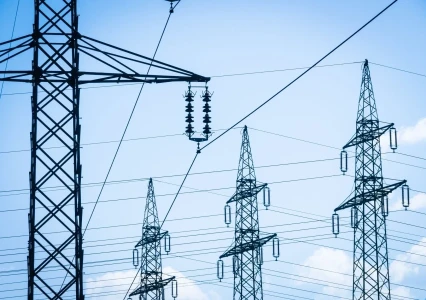Canadian Premiers Confront Escalating Climate Change Disasters

Canadian premiers are facing unprecedented challenges as climate change-related disasters become increasingly frequent and severe. Recent extreme weather events have forced leaders across the country to confront the urgent need for enhanced climate resilience and coordinated disaster response strategies.
The intensifying impact of climate change is evident in the recent surge of natural disasters, from devastating wildfires in Alberta and British Columbia to severe flooding in Nova Scotia and other regions. These events have caused widespread damage, displaced communities, and put significant strain on emergency services. As a result, premiers are being called upon to address the growing climate crisis with more robust and integrated approaches.
In Nova Scotia, recent heavy rains and flooding have wreaked havoc on infrastructure and homes, highlighting the vulnerability of coastal and inland communities to extreme weather. The province has been working to manage the immediate aftermath of the floods while planning for long-term adaptation to reduce future risks. Nova Scotia’s Premier has emphasized the need for increased investment in flood defenses and climate-resilient infrastructure.
Meanwhile, in Alberta, the relentless wildfires have prompted a state of emergency, with large areas of forest land scorched and several communities evacuated. Alberta's Premier has faced criticism for the perceived slow response to the crisis, as well as for previous decisions regarding land management and environmental policies. The provincial government has since ramped up firefighting efforts and is seeking additional federal support to combat the fires and support affected communities.
The increasing frequency and severity of these climate-related disasters have spurred discussions among Canadian premiers about the necessity for a unified national strategy on climate resilience. Recent meetings among the premiers have focused on sharing best practices, improving disaster response coordination, and developing more comprehensive climate adaptation plans.
A key area of concern is the need for better integration between federal, provincial, and municipal governments in managing disaster responses and implementing climate adaptation measures. Premiers are calling for more consistent funding and support from the federal government to help provinces and territories prepare for and respond to climate-related events.
Additionally, there is growing recognition of the importance of addressing the root causes of climate change. Leaders are advocating for stronger climate policies, including measures to reduce greenhouse gas emissions and transition to renewable energy sources. The recent disasters have underscored the urgency of meeting climate targets and investing in sustainable practices to mitigate future risks.
Public opinion is also playing a role in driving climate action. As communities experience firsthand the effects of extreme weather, there is increasing demand for governments to take bold and effective measures to address climate change. Citizens are calling for greater transparency in disaster response efforts and more ambitious climate policies to protect their homes and livelihoods.
In response to these pressures, premiers are committing to more proactive and collaborative approaches to climate change. This includes not only addressing immediate disaster response needs but also investing in long-term strategies to build resilience and reduce vulnerability. The goal is to create a more sustainable and prepared Canada capable of weathering the impacts of an increasingly unpredictable climate.
As Canada faces these mounting climate challenges, the role of premiers and other leaders will be crucial in shaping a resilient future. The emphasis will be on fostering greater cooperation, enhancing climate adaptation measures, and ensuring that the nation is better equipped to handle the escalating impacts of climate change.









